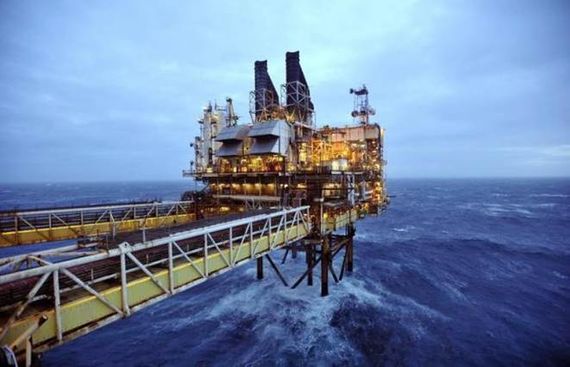Slowdown Enters Oil Track: Oil Consumption, Imports Decline

The oil sector seems to be latest addition to the list of sectors facing stress due to the ongoing economic slowdown. For the first time in many months, both oil demand and imports have witnessed a sharp fall indicating that the poor health of the economy has now begun impacting a sector where the country has to rely a lot on imports.
As per the latest Oil Ministry data, crude oil imports decreased by 13.4 per cent and 2.2 per cent during June 2019 and April-June 2019 respectively as compared to the same period of the previous year. During the first quarter as well, the country's oil demand was lower by 0.2 per cent than that a year ago with the fall sharper in June at 1.7 per cent.
Though the slowdown in oil imports in a country that spends its foreign exchange to buy crude oil should be welcomed, yet it is reflective of the poor demand scenario that has slowed oil imports by refineries.
The refineries are using their inventories to meet domestic supplies of petroleum products rather than buying additional quantities of crude oil from overseas even though buying at this juncture would be beneficial with international crude prices at a low of $64-65 a barrel.
"It is surprising that oil imports have fallen when global prices are stable and low. This means that consumption has declined and demand is not picking up. The sector has begun to feel the pain of an economic slowdown that several of the consuming industries such as automobiles are already facing," said an executive of Indian Oil Corporation asking not to be named.
Though it is difficult to derive a conclusive relationship between oil imports/sales and economic activity, analysts are unanimous that the current contraction is the result of a slowdown. Otherwise, sales of petroleum products should not have fallen when per capita consumption has been growing.
As per the Petroleum Planning and Analysis Cell (PPAC) of the Oil Ministry, except for petrol (10.8 per cent) and diesel (1.4 per cent), sales of industrial, aviation and kitchen fuels have fallen.
Total LPG consumption recorded a de-growth of 7.1 per cent during June 2019 and a cumulative de-growth of 1.5 per cent during April-June 2019, even though the government's Ujjwala scheme is fast expanding the reach of cooking gas to the remotest corners of the country. Even kerosene consumption registered de-growth of 17.2 per cent in June 2019 compared to 12.1 per cent de-growth in June 2018.
All is not good on the oil exports front as well with exports of petroleum products decreasing by 11.4 per cent during June 2019 as compared to the same period of the previous year. Decrease in petroleum product exports during June 2019 was due to decrease in all exports.
Production of petroleum products too saw a de-growth of 9.3 per cent and 2.4 per cent during June 2019 and April-June 2019 respectively as compared to the corresponding period of the previous year.
The total crude oil processed during June 2019 was 20.3 million tones (MT), 7.1 per cent lower than June 2018. On a cumulative basis, the total crude oil processed was 62.6 MT, which was lower by 2.2 per cent during April-June 2019 as compared to the corresponding period of the previous year.
The Indian refineries processed 70.4 per cent high sulphur crude during June 2019 as compared to 78.7 per cent during June 2018.
The slowdown is coming at a time when the international environment is very favourable, in terms of crude oil pricing. The price of Brent crude averaged $64.10 per barrel during June 2019 against $71.12 per barrel during May 2019 and $74.33 per barrel during June 2018. The Indian basket crude price averaged $62.39 per barrel during June 2019 against $70.02 per barrel during May 2019 and $73.83 per barrel during June 2018.
Read More News:
Shah Says Article 370 to Go, J&K no More a State
ISRO Shares Chandrayaan Pics, Students to See Landing
